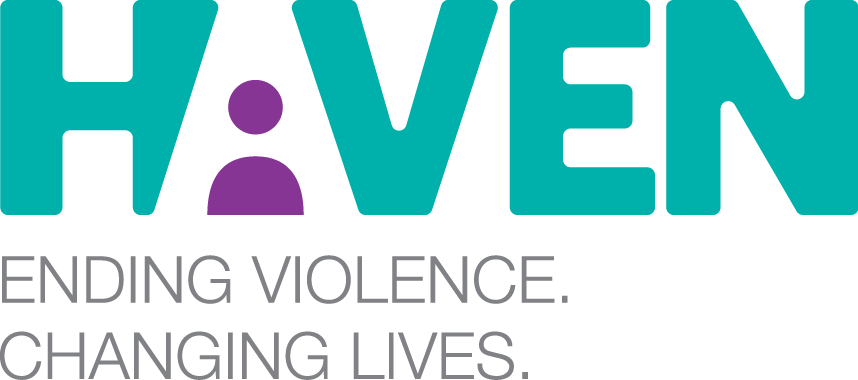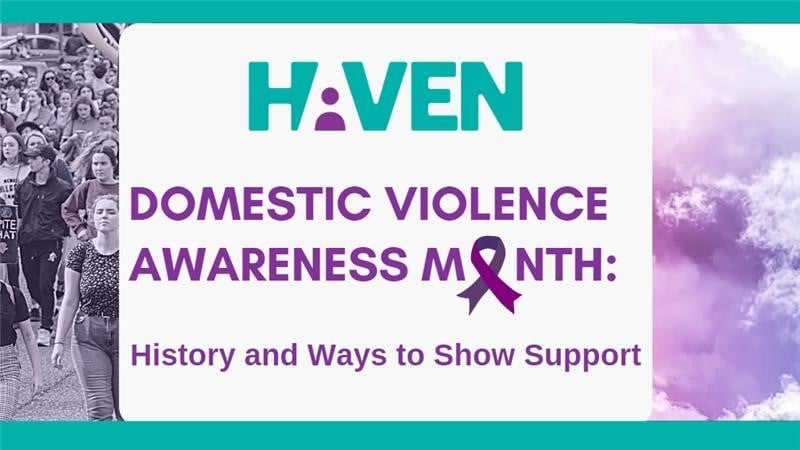
October – Domestic Violence Awareness Month: History and Ways to Show Support
- hvadmin
- October 11, 2022
- Uncategorized / Supporting Survivors / ASP / female survivors / domestic violence awareness month / Awareness Matters / A Safe Place / domestic violence
- 0 Comments
Domestic Violence Awareness Month:
History and Ways to Show Support
Domestic violence pervades all cultures, religions, gender and sexual identities, and countries across the world. Previous HAVEN blog posts have addressed the myths and misconceptions about domestic and sexual violence that you can find here. Domestic violence “also known as intimate partner or relationship abuse, a pattern of behaviors used by one person to maintain power & control over another person in an intimate or family relationship. It includes physical violence, sexual violence, threats, financial abuse, and emotional abuse” (NCADV, 2022). Domestic Violence Awareness Month (DVAM) was officially accepted nationwide in 1987 in order to spread awareness and highlight the services available at the time to support survivors. This post will discuss the history of Domestic Violence Awareness Month (DVAM), the history of HAVEN, the impact DVAM has made, and how together we can continue to strive to end abuse going forward.
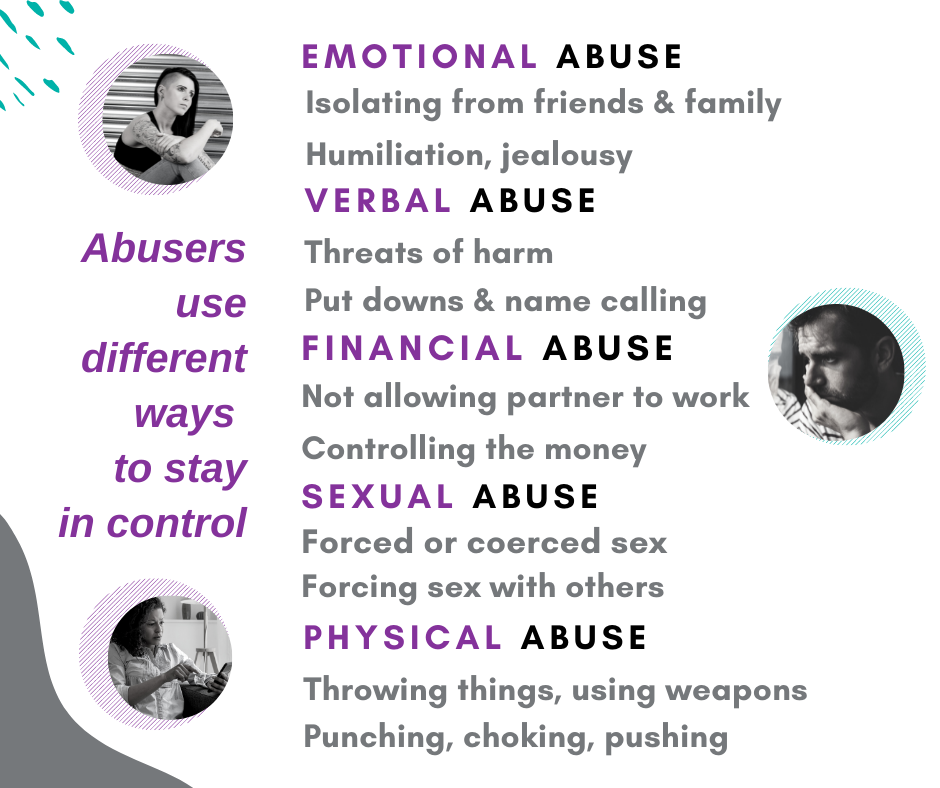
History of DVAM
Starting on January 30th, 1978, the U.S. Commission on Civil Rights sponsored a Consultation on Battered Women: Issues of Public Policy. Activists organized and congregated in Washington in order to listen and advocate for survivors. The consultation resulted in Battered Women: Issues of Public Policy and inspired the organization of the National Coalition Against Domestic Violence (NCADV) (McCue, 2008). By the late 1970s, numerous state laws were put in place to protect survivors of abuse, provide funding for shelters and crisis centers, and “establish more effective criminal court procedures” (McCue, 2008). By 1980 all but 6 states had enacted such laws.

The NCADV declared October 17th, 1981 to be the first “Day of Unity” on behalf of battered women across the country. This day was intended to “celebrate those who have survived, and connecting those who work to end violence” (NCADV, 2022). DVAM was launched nationally in October 1987 as an entire month, that same year the first national domestic violence toll-free hotline was initiated (NCADV, 2022).
In October 1994, NCADV and Ms. Magazine created “Remember My Name”. A National registry of names to increase public awareness of domestic violence and honor those who’ve been killed by intimate partners or family members. (NCADV, 2022).
DVAM gives space to mourn people who’ve been killed by abusers, a platform to spread awareness about the issue, and information about existing services available to those who might need them. Additionally, it has become a way for organizations committed to ending violence to gain momentum to pass legislation and increase funding. For instance, in October 2021 the U.S. Department of Justice announced they were investing more than $476 million in grants to address domestic violence, sexual assault, and stalking (DOJ, 2021) to commemorate DVAM.
During the month of October, everyone is encouraged to join the effort to end domestic violence. Purple is the official color to represent DVAM to show support and spread awareness.
History of HAVEN
In 1975, a small group of women came together and formed a Women’s Resource Center in Portsmouth. These women set up support programs and in-home informational meetings. They grew the organization with person-to-person referrals, word-of-mouth, and newspaper articles. Initially, they were met with some skepticism, but the Charitable Trust put their faith in the group with seed money for getting The Women’s Resource Center off the ground. They did all of this from a small space on the second floor of a horse barn on Merrimack Street in Portsmouth.
In 1984 the Women’s Resource Center became a member of the New Hampshire Coalition Against Family Violence, now known as the New Hampshire Coalition Against Domestic And Sexual Violence (NHCASDV).
Eventually, in 1991, the Women’s Resource Center evolved into Sexual Assault Support Services (SASS) amidst a change in the American consciousness regarding what sexual assault really was. SASS began a 24-hour crisis center and trained advocates for the hotline, provided accompaniments to hospital emergency rooms, police investigations, and court appointments. To this day, these services are integral to HAVEN’s mission.
Similarly, in the early 1970s a group of concerned citizens began a series of forums to discuss the issue of domestic violence in their communities. In 1976 the Rockingham County Community Action Program commissioned a survey to assess the need for a shelter dedicated to survivors. In 1978 a dynamic group began a collaborative effort to inform the Seacoast community about domestic violence and take meaningful steps to eliminate it. The collaboration incorporated as the Seacoast Taskforce on Family Violence and began operating as A Safe Place (ASP). ASP worked with local legislators to pass RSA 173-B (Protection of Persons Against Domestic Violence Statute). RSA 173-B:3 ensured victims would not be charged a filing fee and could appear pro-se (to argue on one’s own behalf) which enhanced and eased access to the court system.
In February 2012 ASP joined SASS as part of the Strafford County Family Justice Center in Rochester, an initiative to provide wraparound services for victims of sexual and domestic abuse all in one place. In 2014, ASP and SASS announced a merger of the agencies and services to better serve victims of sexual and domestic violence and work together towards breaking the cycles of violence in the community. The merged agency moved from its office in Portsmouth City Hall to Pease International Trade Port. The combined agencies rebranded with a new name and logo, HAVEN, in October 2015.
HAVEN serves 48 cities and towns in Rockingham and Strafford counties. We serve a population of over 429,000 residents of Southern New Hampshire, this represents nearly one-third of NH’s total population. HAVEN is the largest nonprofit agency providing services and prevention education to those impacted by domestic and sexual violence in New Hampshire.
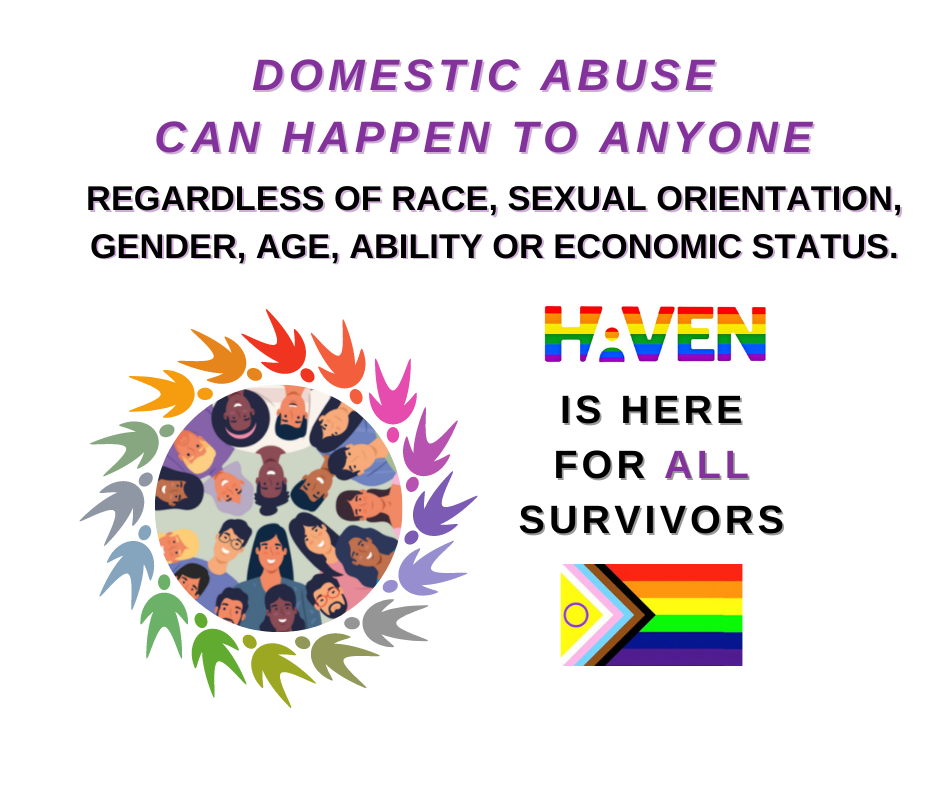
Prevalence of Domestic Violence
It’s important to discuss the substantial progress the movement against Domestic Violence has made. However, it’s equally important to understand the continuing severity of the issue.
![About 1 in 4 women and 1 in 10 men experienced contact sexual violence, physical violence, and/or stalking by an intimate partner and reported an IPV-related impact during their lifetime [image description: four women with one colored purple, 10 men with 1 colored purple to demonstrate the prevalence] of IPV](https://havennh.org/hs-fs/hubfs/Imported_Blog_Media/NHCDAV-prevalence.png?width=848&height=343&name=NHCDAV-prevalence.png)
On average, nearly 20 people per minute are physically abused by an intimate partner in the U.S. (Smith et. al., 2018). 65% of all murder-suicides involved an intimate partner; 96% of the victims of these crimes are female (Violence Policy Center, 2018). In New Hampshire 34.7% of women and 35.4% of men experience domestic violence, sexual violence, or intimate partner stalking in their lifetimes (NCIP, 2019). Domestic violence affects more than 10,000 individuals annually in NH (NHCADSV, 2022).
Show Support
Day of Unity: Recognized on the first Monday in October (October 3rd) celebrates the origin of DVAM. Everyone is encouraged to reflect on where this movement began and where it will go with us.
Purple Thursday: Purple Thursday or “Go Purple Day” is a national day of action each October during DVAM. Wear all things purple to symbolize peace, courage, survival, honor, hope, and personal dedication to Domestic Violence Awareness. On Thursday, October 20th, 2022 put on purple to take a stand against intimate partner violence.
Changing Lives: HAVEN’s signature fundraising event will take place Thursday, October 13th at the Envio in Portsmouth from 6-9 PM. Jenny Johnstone, sister survivor, and retired USA gymnast will be the keynote speaker. Get your tickets and enjoy live music, live entertainment, cocktails, and supporting HAVEN of course! Tickets are available on the events page of our website here.
UNH Take Back the Night: SHARPP (Sexual Harassment and Rape Prevention Program) is UNH’s crisis center and hosts a yearly march to protest abuse and assault. Attend readings and the empowerment of walking alongside community members. This event will take place Thursday 10/13 at 8 PM at Thomas Hall Lawn. Learn more details here.
Host a Gift Card Drive: HAVEN does not usually take donations of items, but we are always looking for gift cards or similar donations we can give to clients. HAVEN follows the empowerment model and prefers to give clients the chance to choose what they need. During a party or event, encourage your guests to bring gift cards instead of presents!
Facebook Fundraiser: HAVEN gets 100% of the proceeds raised by your birthday fundraisers on Facebook! Feel free to choose us during your next birthday!
Volunteer for HAVEN: HAVEN is always looking for new advocates and outreach volunteers! Go to our volunteer page here if you’re interested in making a direct impact on your community.
HAVEN offers support,
information, and access to area support to anyone impacted by sexual violence,
assault, domestic abuse, or stalking. Survivors can access HAVEN advocates 24
hours a day, seven days a week, for support through our hotline 1 (603)
994-SAFE . Not comfortable using the phone? We also now have a “chat with an
advocate” via our website where during our office hours, Monday-Friday, 9 AM –
4 PM, you can use an instant messaging feature to talk with an advocate at
https://havennh.org/! Reach out at any time. We are here to help.
![Written in the image: You are not alone. HAVEN can help. free, confidential 24-hr support 603-994-SAFE (7233). Safety planning; in-person support at court, hospitals, and police departments; online chat support M-F 9-5 via havennh.org; shelter & housing; support groups [image of two hands holding a purple ribbon]](https://havennh.org/hs-fs/hubfs/Imported_Blog_Media/5-1.png?width=940&height=788&name=5-1.png)
References
Jacquet, C. (2015). Domestic violence in the 1970s. photograph, National Library of Medicine. Retrieved from https://www.google.com/url?sa=i&url=https%3A%2F%2Fcirculatingnow.nlm.nih.gov%2F2015%2F10%2F15%2Fdomestic-violence-in-the-1970s%2F&psig=AOvVaw34k6o7lq-H_4MeVOliE3n7&ust=1664477214825000&source=images&cd=vfe&ved=0CAwQjRxqFwoTCODtp_ySuPoCFQAAAAAdAAAAABAD.
McCue, M. L. (2008). Domestic violence: A reference handbook. ABC-CLIO.
NCDSV: National Center on Domestic and Sexual Violence. (2022). Domestic Violence Awareness Month History. National Center on Domestic and Sexual Violence. Retrieved September 28, 2022, from http://www.ncdsv.org/
NCIP: National Center for Injury Prevention and Control (2019). The national intimate partner and sexual violence survey: 2010-2012 State Report. Centers for Disease Control and Prevention. Retrieved from https://www.cdc.gov/violenceprevention/pdf/NISVS-StateReportBook.pdf.
NHCADVS. (2022). DVAM events 2022. New Hampshire Coalition Against Domestic and Sexual Violence. Retrieved September 28, 2022, from https://www.nhcadsv.org/dvam2022.html
Smith, S.G., Zhang, X., Basile, K.C., Merrick, M.T., Wang, J., Kresnow, M., Chen, J. (2018). The National Intimate Partner and Sexual Violence Survey (NISVS): 2015 Data Brief – Updated Release. Atlanta, GA: National Center for Injury Prevention and Control, Centers for Disease Control and Prevention.
U.S. Department of Justice. (2021, October 5). Justice Department commemorates National Domestic Violence Awareness Month. The United States Department of Justice. Retrieved September 28, 2022, from https://www.justice.gov/opa/pr/justice-department-commemorates-national-domestic-violence-awareness-month
Violence Policy Center. (2018). American roulette: Murder-suicide in the United States. Retrieved from www.vpc.org/studies/amroul2018.pdf.
You Might Also Like
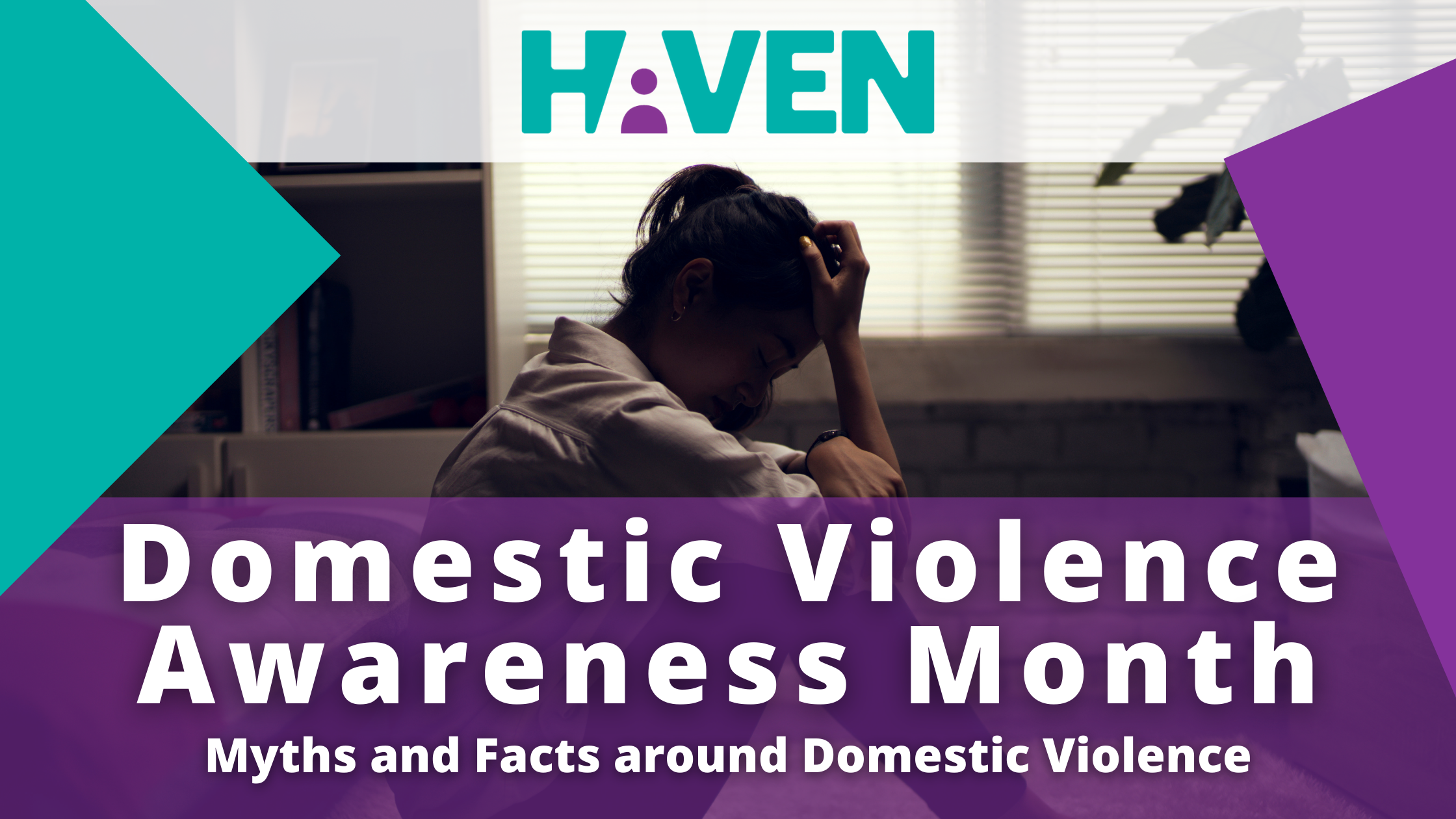
DVAM 2020 Blog Post: Myths and Facts

Framing Harm: How Media Shapes Our Understanding of Domestic and Sexual Violence

